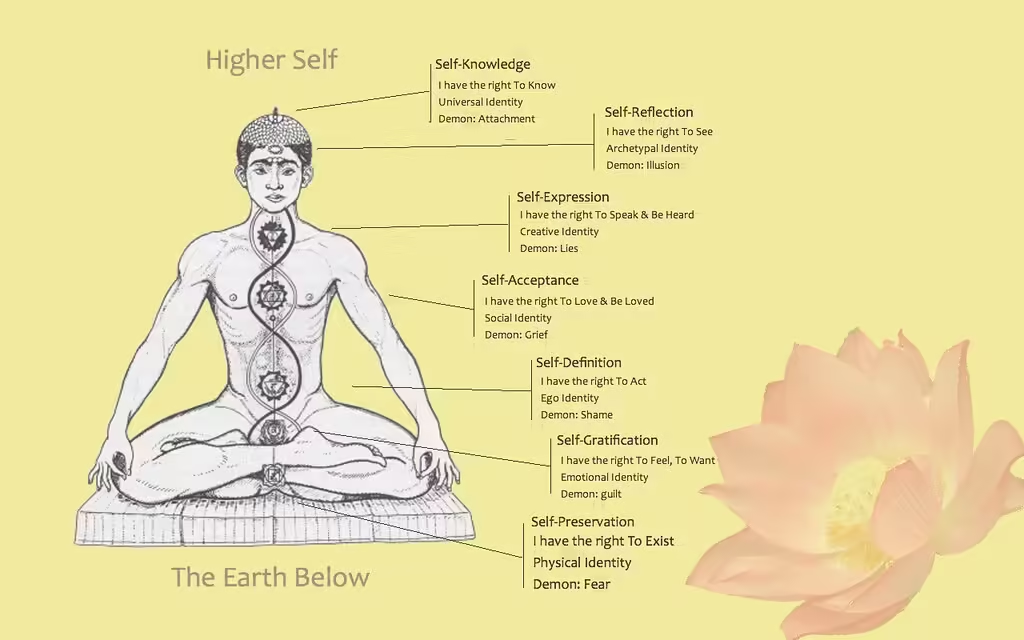
Self-preservation, the act of protecting and maintaining one’s own health, safety, and well-being, is a fundamental aspect of human behavior. It encompasses physical, emotional, and psychological dimensions, all of which contribute to overall life satisfaction and resilience. Prioritizing self-preservation is not only essential for survival but also for leading a fulfilling and balanced life. Here’s why self-preservation is crucial and how it benefits you.
Physical Health
- Preventing Burnout: In a fast-paced world, burnout is a common issue. By practicing self-preservation, such as taking breaks, getting adequate sleep, and maintaining a balanced diet, you can prevent burnout and sustain your energy levels over the long term.
- Strengthening Immunity: Prioritizing self-care activities like regular exercise, proper nutrition, and stress management can boost your immune system. A strong immune system is essential for preventing illnesses and recovering quickly when you do get sick.
- Enhancing Longevity: Consistently taking care of your physical health through preventive measures can enhance your longevity. Regular health check-ups, avoiding harmful habits, and engaging in physical activities contribute to a longer, healthier life.
Emotional and Mental Well-Being
- Reducing Stress: Stress is an inevitable part of life, but how you manage it determines its impact on your health. Self-preservation involves recognizing stressors and implementing strategies such as mindfulness, meditation, and hobbies to reduce stress and maintain emotional balance.
- Improving Mental Health: Self-preservation means taking steps to protect your mental health. This includes seeking therapy or counseling when needed, practicing self-compassion, and avoiding toxic relationships or environments that can negatively impact your mental well-being.
- Building Resilience: By focusing on self-preservation, you build resilience. This means developing the ability to bounce back from setbacks and challenges. Resilient individuals can navigate life’s ups and downs more effectively, maintaining a positive outlook despite difficulties.
Personal and Professional Relationships
- Setting Boundaries: Establishing and maintaining personal boundaries is a key aspect of self-preservation. Boundaries protect you from being overwhelmed or taken advantage of, ensuring that your needs and well-being are respected in personal and professional relationships.
- Enhancing Relationship Quality: When you prioritize your own well-being, you bring a healthier, more balanced version of yourself to your relationships. This can enhance the quality of your interactions, fostering mutual respect, understanding, and support.
- Avoiding Toxicity: Self-preservation involves recognizing and distancing yourself from toxic relationships that drain your energy and negatively impact your well-being. Surrounding yourself with supportive and positive individuals contributes to a healthier social environment.
Productivity and Fulfillment
- Boosting Productivity: Taking care of your physical and mental health directly impacts your productivity. When you are well-rested, stress-free, and physically healthy, you can focus better, think more clearly, and perform tasks more efficiently.
- Finding Fulfillment: Self-preservation allows you to pursue activities and interests that bring you joy and fulfillment. Whether it’s a hobby, a career, or personal development, prioritizing your well-being enables you to engage fully in pursuits that enrich your life.
- Maintaining Balance: Striking a balance between work, personal life, and self-care is crucial for long-term satisfaction. Self-preservation helps you manage your time and energy, ensuring that all aspects of your life receive the attention they need.
Strategies for Practicing Self-Preservation
- Regular Self-Assessment: Periodically assess your physical, emotional, and mental well-being. Identify areas where you need more support or change and take proactive steps to address them.
- Prioritize Self-Care: Incorporate self-care activities into your daily routine. This could include exercise, healthy eating, adequate sleep, and activities that relax and rejuvenate you.
- Set and Maintain Boundaries: Clearly define your limits in personal and professional relationships. Communicate your boundaries assertively and consistently enforce them to protect your well-being.
- Seek Support: Don’t hesitate to seek help when needed. Whether it’s talking to a trusted friend, joining a support group, or seeking professional counseling, support networks are vital for self-preservation.
- Practice Mindfulness: Engage in mindfulness practices such as meditation, deep breathing, or yoga. These activities can help you stay grounded, manage stress, and maintain a positive outlook.
Conclusion
Self-preservation is a vital practice that encompasses all aspects of your well-being. By prioritizing your physical health, emotional balance, mental resilience, and personal fulfillment, you can lead a more balanced, satisfying, and productive life. Remember, taking care of yourself is not selfish; it’s essential for being able to care for others and fully engage in the world around you. By embracing self-preservation, you ensure that you are the best version of yourself, capable of facing life’s challenges and enjoying its many rewards.
